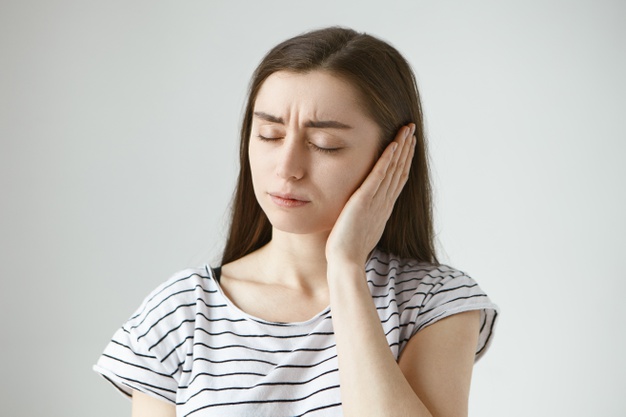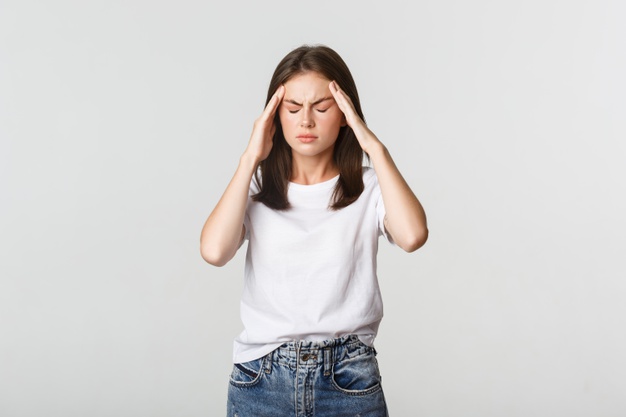8 Types of Beef Cattle with the Best Meat Quality
The types of beef cattle with the best meat quality are always sought after by many people. This is because beef cattle have many benefits for humans. So, what are the types of beef cattle?

Kapanlagi.com - Dizziness is a health complaint that is felt with sensations such as spinning, floating, weakness, or loss of balance. This condition usually occurs as a sign of a health disorder that can lead to certain diseases. The causes of dizziness can occur due to various factors that affect sensory organs such as the eyes and ears.
Dizziness can occur in mild to severe conditions with various causes. For example, mild dizziness can be caused by motion sickness, side effects of drugs, or temperature that sometimes causes dizziness.
Meanwhile, in severe conditions, dizziness can be the initial symptoms of certain health disorders that trigger the occurrence of diseases. This condition is usually experienced when dizziness occurs repeatedly, the symptoms are quite severe, for a long time, and without clear causes.
Generally, dizziness is not a serious illness, but it needs to be aware of if it leads to certain health disorders. In addition, when experiencing dizziness, sufferers will feel uncomfortable and even disrupt daily activities. This condition is often experienced by adults with various levels of dizziness complaints.
The causes can occur due to several important factors that need to be known if you often experience dizziness. The causes of dizziness that often occur are found in several points below. The following are the causes of dizziness that have been summarized by kapanlagi.com from various sources.

(credit: freepik.com)
The first cause of dizziness can occur due to experiencing vertigo. Vertigo and dizziness are often associated with each other. Vertigo is a sensation of spinning or the surroundings spinning. This condition usually occurs due to disturbances in sensory nerves such as the ears and eyes.
Vertigo can occur at various levels from mild to severe. In this case, dizziness is often a result of vertigo, both of which can be caused by conditions such as benign paroxysmal positional vertigo (BPPV). According to healthline.com, dizziness due to vertigo can occur when the body suddenly changes position, for example, from sitting to standing. However, in more serious conditions, dizziness associated with vertigo can be linked to diseases such as migraines, Meniere's disease, or infections.
The next cause of dizziness can occur due to dehydration. Dehydration is a condition when the body lacks fluids. This can be caused by several factors such as excessive physical activity, air temperature effects, excessive sweating, or certain medical conditions.
When experiencing serious dehydration, the body will feel several symptoms, one of which is dizziness. According to webmd.com, this happens because of a sudden drop in blood pressure, causing the brain to not receive enough oxygen. As a result, you may experience dizziness due to excessive dehydration.

(credit: freepik.com)
The frequent cause of dizziness can also be caused by migraines. Migraine is a headache with throbbing pain on one side of the head. This condition can last for some time, and in some people, migraines can recur. Migraine is also a cause and risk factor for vertigo, which can also cause complaints of dizziness.
When experiencing migraines, several symptoms can appear such as spinning dizziness, nausea and vomiting, and even unclear speech. According to liputan6.com, some people may experience dizziness before the onset of migraines.

(credit: freepik.com)
Meniere's disease is a health disorder that includes vertigo. This condition attacks the hearing, causing an accumulation of excess fluid in the inner ear. As a result, a person may experience hearing loss, ringing in the ears, or pressure in the ears.
Meniere's disease also causes the sufferer to experience spinning dizziness that lasts for some time. Consultation and medical examination may be considered to address Meniere's disease appropriately.

(credit: freepik.com)
Another cause of dizziness can be experienced due to low blood pressure. Low blood pressure, also known as hypotension, occurs when blood pressure is below 90/60 mmHg. Normal blood pressure is typically in the range of 120/80 mmHg. Low blood pressure can cause various symptoms, including dizziness.
The causes can be dehydration, side effects of medication, or heart problems. Regarding the mildest dizziness, low blood pressure can be experienced due to sudden changes in position, such as standing up too quickly from a seated position. This low blood circulation disorder causes insufficient blood flow to the brain to carry oxygen. As a result, dizziness can be felt and may even cause fainting.

(credit: freepik.com)
Dizziness can also occur due to certain drug side effects. According to webmd.com, several types of drugs can cause dizziness as a side effect. Among the types of drugs that can cause dizziness as a side effect are antibiotics, antidepressants, anti-seizure medications, and blood pressure medications. Consultation and medical examination are necessary to help manage the occurring drug side effects.
Frequent dizziness can also be caused by anemia. Anemia is a health disorder that occurs when the body lacks red blood cells. These red blood cells function to supply oxygen to the entire body, including the central nervous system. This causes several symptoms such as dizziness, fatigue, chest pain, shortness of breath, and pale skin. To prevent it, you can meet your nutritional needs rich in iron to help in the formation of red blood cells.

(credit: freepik.com)
Frequent dizziness can also be a sign of hypoglycemia. Hypoglycemia is a condition when blood sugar is low or below normal limits. Hypoglycemia is often experienced by people with diabetes who are susceptible to insulin disorders. When experiencing hypoglycemia, a person may also feel dizzy accompanied by cold sweat and even anxiety. Consultation and examination may be considered to help overcome the symptoms that arise.
The frequent cause of dizziness in everyone is due to experiencing stress. Stress is a condition that occurs when feeling pressure, threat, or change. It can trigger various health problems including affecting physical conditions. One of them is feeling dizzy after experiencing stress or anxiety. As reported by mayoclinic.org, certain anxiety disorders can cause dizziness due to pressure, fear, or threat and changes in situations.
This happens because stress can affect hormones in the body. Where these hormones can also disrupt the respiratory and cardiovascular systems. As a result, dizziness and other symptoms are inevitable when experiencing stress.

(credit: freepik.com)
Several ways to overcome dizziness can be easily done to alleviate the symptoms of dizziness. The following are ways to overcome dizziness that can be considered for complaints of dizziness that are felt.
- Avoid sudden changes in body position.
- Wake up slowly in the morning, sit and stand slowly after one minute.
- Move your head carefully and slowly when doing daily activities.
- Meet the body's fluid needs by drinking plenty of water.
- Get enough rest to prevent dizziness.
- Avoid excessive stress to prevent dizziness.
- Limit the consumption of alcohol, caffeine, or smoking.
- Consume healthy foods that are rich in vitamins and nutrients.
Those are the 9 common causes of dizziness, be aware of the signs of illness. Consultation and further examination can be considered to overcome the dizziness experienced. Because the condition could be caused by certain health disorders.
(kpl/nlw)
Cobain For You Page (FYP) Yang kamu suka ada di sini,
lihat isinya
The types of beef cattle with the best meat quality are always sought after by many people. This is because beef cattle have many benefits for humans. So, what are the types of beef cattle?
In living life, humans interact and communicate with each other. In fact, communication is very important as it is always used in various aspects of life. Learn more about it here.
It is also important to know that hadiths have various classifications according to their formation, such as the beginning of the chain of narration, the integrity of the chain of narration, the number of narrators (rawi), and the level of authenticity of the hadith. Here's the complete explanation.
Here are 15 benefits of boiled cassava for body health, along with the content and how to process it. Let's check it out KLovers.
Here are wise Naruto quotes that can touch your heart. What are those quotes? Let's check them out, KLovers.
Malaria is a health disorder caused by parasites. The cause of malaria itself can occur due to various triggering factors that are easily transmitted through the blood of malaria patients.
It is important for you to know that advertisements are divided into several types based on their content, media, and objectives. For those of you who are not familiar with the complete explanation of the types of advertisements, check out the following review.
Floor patterns are one of the elements in the art of dance. Therefore, the existence of floor patterns is very important, especially in traditional group dances. Read more about it here.
Commitment is very important. Because, the presence of commitment will affect a person's consistency in taking action. Find a deeper explanation here.
Mumps is a health disorder that occurs due to inflammation caused by a viral infection. It attacks the parotid glands that produce saliva. Here are the causes of mumps and the risk factors for transmission.
These are 80 good and funny WhatsApp group names, suitable for fun group chats. What are those names? Let's check them out, KLovers.
You also need to know that there are types of interviews that are adjusted to each individual's needs. To make it clearer, here is a more complete explanation of the types of interviews that you need to know.